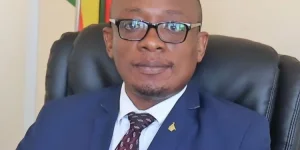Zimbabwe has started checking all public schools across the country. The government wants to make sure schools follow rules about student fees and accept the new ZiG money. They don't want schools to keep students' test results when families can't pay fees right away. This big school check comes as part of plans to improve education for everyone.
Officials want fewer students in each classroom—around 20 to 30 kids instead of the current overcrowded rooms. They plan to check if teachers have proper training certificates. The review looks at whether schools charge the correct fees and take the new currency. They care about how far kids must travel to reach school, especially the younger children who shouldn't walk long distances.
The inspection team checks school buildings, making sure disabled students can move around easily. They also watch how schools teach the new education program that focuses on Zimbabwe's heritage. Taungana Ndoro from the education ministry talked about why this matters. He said they want all schools everywhere to meet the same good standards.
Many people help with these school visits. Education leaders, government workers, members of Parliament, and international helpers all joined the effort. By bringing different experts together, they can better judge how well schools run and what conditions students learn in. The team specifically looks for schools that charge more than allowed or refuse to take ZiG money.
Some schools keep final exam results away from students who haven't paid all fees, which breaks education rules. Many country schools lack science rooms, computer spaces, electronic books, and wheelchair ramps. The review team also asks about stopping bullying, dealing with sexual harassment, and planning for emergencies like fires or storms.
Several schools haven't been checked for more than ten years. The ministry wants to set up regular visits so that problems don't stay hidden. Ndoro explained that checking schools often helps find issues early. When they spot problems quickly, they can fix them fast and keep education quality high for all Zimbabwe's children.
Officials want fewer students in each classroom—around 20 to 30 kids instead of the current overcrowded rooms. They plan to check if teachers have proper training certificates. The review looks at whether schools charge the correct fees and take the new currency. They care about how far kids must travel to reach school, especially the younger children who shouldn't walk long distances.
The inspection team checks school buildings, making sure disabled students can move around easily. They also watch how schools teach the new education program that focuses on Zimbabwe's heritage. Taungana Ndoro from the education ministry talked about why this matters. He said they want all schools everywhere to meet the same good standards.
Many people help with these school visits. Education leaders, government workers, members of Parliament, and international helpers all joined the effort. By bringing different experts together, they can better judge how well schools run and what conditions students learn in. The team specifically looks for schools that charge more than allowed or refuse to take ZiG money.
Some schools keep final exam results away from students who haven't paid all fees, which breaks education rules. Many country schools lack science rooms, computer spaces, electronic books, and wheelchair ramps. The review team also asks about stopping bullying, dealing with sexual harassment, and planning for emergencies like fires or storms.
Several schools haven't been checked for more than ten years. The ministry wants to set up regular visits so that problems don't stay hidden. Ndoro explained that checking schools often helps find issues early. When they spot problems quickly, they can fix them fast and keep education quality high for all Zimbabwe's children.












